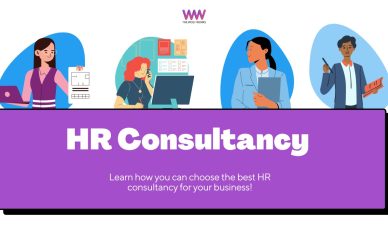On a job quest, one always remembers to formulate the “perfect resume” that outlines every achievement but misses out on brushing up on the interview skills that practically guide the outcome. This is your reminder to check and work on these set of skills.
Recruitment experts at The Wolf Works mention these ‘eight’ essential tips that you need to ace that interview:
PREPARATION: DO YOUR RESEARCH
Any interviewer can decode when you aren’t familiar with their company. It is essential that you learn about the company you are applying to. There needs to be a competent understanding of the company’s operations and its values. It displays your sincerity and passion for the opportunity.
If you are just doing a last-minute check, it won’t take much time to read the “about us” section on the company website.
THINK ABOUT YOUR REASONS
Be it a fresher or someone who is looking for change or growth, you always have a personal goal in mind when you apply for a certain position. Interestingly, interviewers have a keen eye for determining your intrinsic motivation for that position. You need to list out the reasons for some of these common questions:
‘Why are you job searching?’
‘Why did you apply to this company?’
‘What do you expect to gain from this role?’
Pro-tip: Always keep two reasons ready.
BE THOROUGH WITH YOUR RESUME
One of the most crucial interview preparation tips is also one of the simplest: know your resume. If you haven’t looked at your resume in a while, do so now. The reasons you prepare for should be consistent with what you mention in your resume.
It is also pertinent to add that you should keep your resume information correct. A hiring manager may be misled by overstated or false qualifications, which could land you in a situation for which you are not qualified.
BE SPECIFIC
The principle that guides your responses in an interview is “less is more.” This does not mean that you provide incomplete information.
The pressure and nervousness of an interview may make you blabber your answers, which do not impress the interviewer. You may get carried away while answering. This diverts attention away from the important details. In fact, overcommunication may display a lack of communication skills. Thus, you need to be brief while you answer. You show politeness to the interviewer by keeping your responses concise.
FRAME YOUR ANSWERS CORRECTLY
It is quite possible that you were mismanaged and ill-treated at your old job at the hands of the manager. So, when the interviewer asks about the reasons for your change of organisation or position, can you exactly mention the same? Absolutely not.
It is essential that you frame the answers in an optimistic light. Two examples of your correctly framed response include:
I seek an organisation with more supportive management.
I gained everything I aimed to achieve from that role. My goal is to grow more in the industry.
SELF-AWARENESS IS A MUST
The most common question at every interview centres around your strengths and weaknesses. Similarly, it receives the most common and pretentious answers. When people offer vague and illogical answers to these questions, they extract disappointment. The interviewer aims to receive answers that reflect self-awareness.
The craft is to phrase the answer in a reflective and proactive manner. You should not only mention your weakness when asked, but also your approach to working on it.
For example, I am too straightforward when I answer. I am working on it by always taking a brief pause before answering.
BE A GOOD LISTENER
You expect the interviewer to sit patiently through your answers; they seek the same. It is important to treat your interview like a conversation. If it had been a monologue, it wouldn’t be called an interview.
As essential as it is to be interactive, one also needs to be attentive. It is also a mark of respect that you do not interrupt the interviewer until they have completed their sentence.
FORMULATE YOUR QUESTIONS
One gets so worried about shaping their answers right that they do not prepare their doubts or questions about the company. An interview is a great opportunity for you to understand your employer.
By the end, when the interviewer asks about your doubts and you deny them, it only displays your disinterest or nervousness to end the interview as soon as possible.
This does not mean you carry your whole list of questions, but just a couple of them are adequate. For instance, you may ask them their most favourable thing about that organization.
BONUS TIP: BE MINDFUL OF THE LITTLE THINGS
As always, little things might matter more than you think. Thus, while you ace the question-answer correctly, it is also important to keep other things in check. These include arriving 10 minutes early for the interview, behaving professionally, dressing appropriately, and maintaining positive body language.
#interviewtips #growth #recruitment #staffing #jobsearch #productivity
On a job quest, one always remembers to formulate the “perfect resume” that outlines every achievement but misses out on brushing up on the interview skills that practically guide the outcome. This is your reminder to check and work on these set of skills.
Recruitment experts at The Wolf Works mention these ‘eight’ essential tips that you need to ace that interview:
PREPARATION: DO YOUR RESEARCH
Any interviewer can decode when you aren’t familiar with their company. It is essential that you learn about the company you are applying to. There needs to be a competent understanding of the company’s operations and its values. It displays your sincerity and passion for the opportunity.
If you are just doing a last-minute check, it won’t take much time to read the “about us” section on the company website.
THINK ABOUT YOUR REASONS
Be it a fresher or someone who is looking for change or growth, you always have a personal goal in mind when you apply for a certain position. Interestingly, interviewers have a keen eye for determining your intrinsic motivation for that position. You need to list out the reasons for some of these common questions:
‘Why are you job searching?’
‘Why did you apply to this company?’
‘What do you expect to gain from this role?’
Pro-tip: Always keep two reasons ready.
BE THOROUGH WITH YOUR RESUME
One of the most crucial interview preparation tips is also one of the simplest: know your resume. If you haven’t looked at your resume in a while, do so now. The reasons you prepare for should be consistent with what you mention in your resume.
It is also pertinent to add that you should keep your resume information correct. A hiring manager may be misled by overstated or false qualifications, which could land you in a situation for which you are not qualified.
BE SPECIFIC
The principle that guides your responses in an interview is “less is more.” This does not mean that you provide incomplete information.
The pressure and nervousness of an interview may make you blabber your answers, which do not impress the interviewer. You may get carried away while answering. This diverts attention away from the important details. In fact, overcommunication may display a lack of communication skills. Thus, you need to be brief while you answer. You show politeness to the interviewer by keeping your responses concise.
FRAME YOUR ANSWERS CORRECTLY
It is quite possible that you were mismanaged and ill-treated at your old job at the hands of the manager. So, when the interviewer asks about the reasons for your change of organisation or position, can you exactly mention the same? Absolutely not.
It is essential that you frame the answers in an optimistic light. Two examples of your correctly framed response include:
I seek an organisation with more supportive management.
I gained everything I aimed to achieve from that role. My goal is to grow more in the industry.
SELF-AWARENESS IS A MUST
The most common question at every interview centres around your strengths and weaknesses. Similarly, it receives the most common and pretentious answers. When people offer vague and illogical answers to these questions, they extract disappointment. The interviewer aims to receive answers that reflect self-awareness.
The craft is to phrase the answer in a reflective and proactive manner. You should not only mention your weakness when asked, but also your approach to working on it.
For example, I am too straightforward when I answer. I am working on it by always taking a brief pause before answering.
BE A GOOD LISTENER
You expect the interviewer to sit patiently through your answers; they seek the same. It is important to treat your interview like a conversation. If it had been a monologue, it wouldn’t be called an interview.
As essential as it is to be interactive, one also needs to be attentive. It is also a mark of respect that you do not interrupt the interviewer until they have completed their sentence.
FORMULATE YOUR QUESTIONS
One gets so worried about shaping their answers right that they do not prepare their doubts or questions about the company. An interview is a great opportunity for you to understand your employer.
By the end, when the interviewer asks about your doubts and you deny them, it only displays your disinterest or nervousness to end the interview as soon as possible.
This does not mean you carry your whole list of questions, but just a couple of them are adequate. For instance, you may ask them their most favourable thing about that organization.
BONUS TIP: BE MINDFUL OF THE LITTLE THINGS
As always, little things might matter more than you think. Thus, while you ace the question-answer correctly, it is also important to keep other things in check. These include arriving 10 minutes early for the interview, behaving professionally, dressing appropriately, and maintaining positive body language.
#interviewtips #growth #recruitment #staffing #jobsearch #productivity




